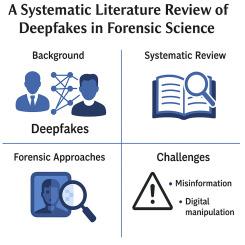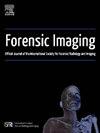对法医科学中深度造假的系统文献综述
IF 1
Q4 RADIOLOGY, NUCLEAR MEDICINE & MEDICAL IMAGING
引用次数: 0
摘要
本研究探讨了深度造假的复杂含义,这是人工智能(AI)和深度学习在法医学中的有争议的应用。它强调了与使用深度伪造相关的伦理困境和技术挑战,强调了深度伪造对数字证据完整性构成的日益增长的风险。该研究还讨论了日益复杂的深度伪造内容的发展与检测工具的进步之间正在进行的“军备竞赛”。此外,它还调查了深度造假的心理和法律方面,倡导关键技术进步和道德框架,以减轻相关风险。对7个学术数据库中2021年至2024年间发表的36篇研究论文进行了系统的文献综述。该分析确定了关键的研究趋势,对关键关键词进行了分类,并检查了深度伪造研究中使用的各种法医方法。研究结果表明,尽管在深度伪造检测和法医分析方面取得了进展,但迫切需要跨学科合作,以建立打击数字操纵的标准化方法和框架。检测技术的不断进步,以及将道德考虑纳入法医实践,对于在深度伪造技术快速发展的情况下保持数字证据的完整性至关重要。本文章由计算机程序翻译,如有差异,请以英文原文为准。

A systematic literature review of deepfakes in forensic science
This research explores the complex implications of deepfakes, a controversial application of Artificial Intelligence (AI) and deep learning in forensic science. It highlights the ethical dilemmas and technological challenges associated with their use, emphasizing the growing risk deepfakes pose to the integrity of digital evidence. The study also addresses the ongoing ‘arms race’ between the development of increasingly sophisticated deepfakes content and the progress in detection tools. Additionally, it investigates the psychological and legal aspects of deepfakes, advocating for critical technological advancements and ethical frameworks to mitigate the associated risks. A systematic literature review of 36 selected research articles published between 2021 and 2024 across seven academic databases was conducted. The analysis identifies key research trends, categorizes essential keywords, and examines the various forensic approaches employed in deepfakes research. The findings reveal that, while progress has been made in deepfakes detection and forensic analysis, interdisciplinary collaboration is urgently needed to establish standardized methods and frameworks to combat digital manipulation. Continuous advancements in detection techniques, alongside the integration of ethical considerations into forensic practices, will be crucial to preserving the integrity of digital evidence amidst the rapid evolution of deepfakes technology.
求助全文
通过发布文献求助,成功后即可免费获取论文全文。
去求助
来源期刊

Forensic Imaging
RADIOLOGY, NUCLEAR MEDICINE & MEDICAL IMAGING-
CiteScore
2.20
自引率
27.30%
发文量
39
 求助内容:
求助内容: 应助结果提醒方式:
应助结果提醒方式:


